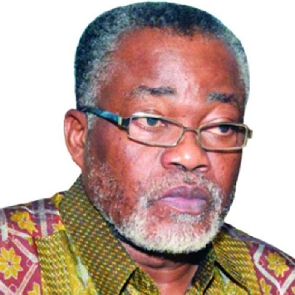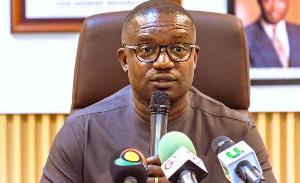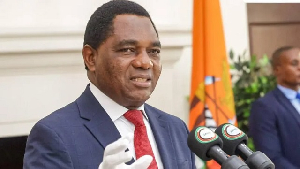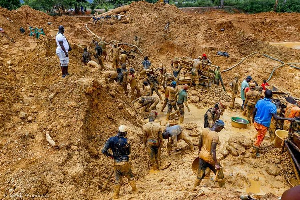A retired military man, Colonel Festus Aboagye, has given his perspective on how the Economic Community of West African States (ECOWAS) decision to use its stand-by troops to oust the new military leadership of Niger would be successful.
According to him, intelligence suggests that Niger has an armed force with the strength of at least 20,000 troops and as much weaponry.
He said that for any military operation against Niger to be successful at least 50,000 or more troops and equipment would be needed.
Colonel Festus Aboagye (rtd), who made these remarks in a JoyNews interview on Tuesday, August 15, 2023, added that the bloc should not make the mistake of sending troops less than that of Niger like they did in Liberia, during the removal of Charles McArthur Ghankay, which led to a prolonged war.
“… the Niger Armed Forces is about 20,000 and their senate decided before Bazoum was overthrown, to increase that size to 30,000. So, if you come to what we call force ratio, that anybody attacking another opponent in a defensive position needs three times the number of forces and the guns and everything, three times.
“So, if Niger armed forces about 20,000 that could even be higher with recent combat capacity capabilities. When you go in, you need troops in the region of 50,000. The mistake that we may be making is what we made with regards to Liberia ECOMOG 1990.
“We went with 2600 there about and struggled to contain Charles Taylor. At the peak of the operation, we were 13,000. We had assets from our partners from the West and so on,” he said.
The retired colonel also said that the army chiefs of the various armies in the West African sub-region are aware of this and would be discussing this extensively at a meeting they would be having in Accra on Thursday, August 17, 2023.
“In other words, this meeting on Thursday must do the bolts and nuts and the officers and the admirals know how to do that. The estimates, they know how to do that, and building what we've been talking about as risks. There are very serious inherent risks in this intervention,” he added.
Background:
The Authority of Heads of State and Governments of the Economic Community of West Africa State (ECOWAS) ordered the deployment of a standby force to Niger.
ECOWAS leaders gave the directive to the President of the Commission at Extraordinary Session in Abuja, Nigeria on August 10, 2023.
The Extraordinary Summit was convened as a sequel to the recent one held on 30th July 2023, following what ECOWAS describes as the illegal detention of President Mohamed Bazoum by the members of the Presidential Guard of the Republic of Niger on July 26, 2023.
The communique issued by the Authority reiterates its strong condemnation of the attempted coup d’etat and the continued illegal detention of President Mohammed Bazoam, his family, and members of his government.
Meanwhile, the military juntas in Burkina Faso and Mali have said that any forcible attempt to restore President Mohamed Bazoum in neighbouring Niger will be seen as a declaration of war on them.
Many security experts have warned of disastrous consequences should the bloc go on with its decision to send troops to Niger.
BAI/NOQ
Ghana’s leading digital news platform, GhanaWeb, in conjunction with the Korle-Bu Teaching Hospital, is embarking on an aggressive campaign which is geared towards ensuring that parliament passes comprehensive legislation to guide organ harvesting, organ donation, and organ transplantation in the country.
Meanwhile, watch the latest #SayItLoud video on GhanaWeb TV with Etsey Atisu below:
General News of Wednesday, 16 August 2023
Source: www.ghanaweb.com













